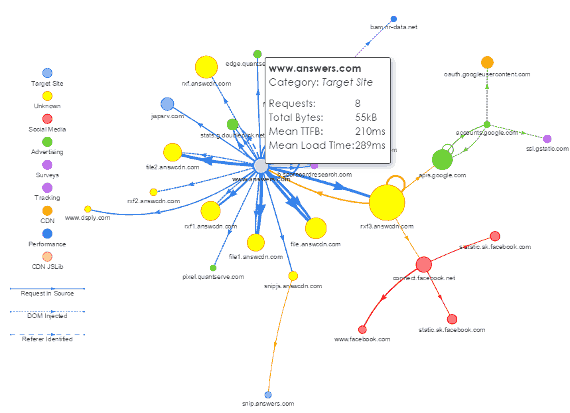Catchpoint recently released an enhanced version of the WebPageTest (WPT) performance testing API. The now generally available API provides programmatic access to the WebPageTest data and test infrastructure, and offers in-depth front-end performance metrics and side-by-side video comparisons of user experience.
The release includes deeper performance metrics, immediate test results, dedicated support, developer resources, and CI/CD integrations. Catchpoint’s official GitHub action for WebPageTest additionally lets users validate that code changes do not result in breaking assigned performance budgets. The GitHub action sets budgets for WebPageTest metrics and automatically creates comments on new pull requests — including key metrics, waterfall, and more.
Developers with an API key can already take advantage of several community-built integrations. WebPageTest Bulk Tester tests multiple URLs. AutoWebPerf (from the Chrome Team) strives to provide a flexible and scalable framework for running web performance audits and store metrics in data stores (e.g., local JSON files, Google Sheets, BigQuery, in-house SQL database). Request Map generates a node map of all the requests on a page to identify third parties and their impact on performance. Simon Hearne, web performance architect and author of Request Map, provided the following performance analysis of the answers.com website:

Catchpoint acquired WebPageTest API in September last year. Patrick Meenan, founder of Webpagetest.org and Engineering Fellow at Catchpoint, explained then:
Today, IT teams struggle to meet web and application performance expectations and keep pace with the demands and growth from digital transformation. […] By bringing together Catchpoint’s renowned command and control architecture and distributed footprint with Webpagetest web performance testing capabilities, IT teams will have the insight needed to monitor, detect, identify and resolve performance and availability issues quickly.
The API may let developers integrate performance testing within their development workflow and detect performance and usability issues before application users do. Upfront awareness of performance bottlenecks may also lead to improved Google rankings, as the Core Web Vitals performance indicators will be factored into Google’s search algorithm starting May 2021.
Developers can refer to the WebPageTest API repository or the API documentation for additional information. According to Catchpoint, the Webpagetest.org service supports more than 1 million users per month.